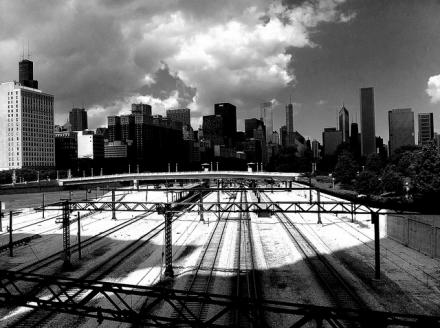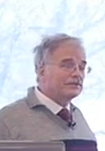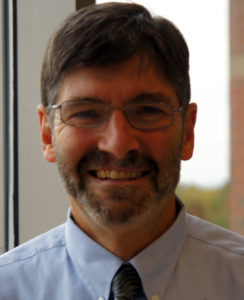
We sometimes describe Henry George’s fiscal proposal as a “smart tax,” unlike the inefficient anti-prosperity taxes that fund most government programs today. Similarly, there can be “smart” transit facilities, which are distinguished from dumb ones because they are cost less and provide more service. Perhaps the most prominent recent smart transit proposal is the CTA Gray Line, whose creator, Mike Payne, will be our speaker tonight.
From the CTA Gray Line web page:
Launching the Gray Line would provide a brand new CTA Rapid Transit (‘L’) service (on EXISTING facilities) to Grant Park, the Museum Campus, the newly renovated Soldier Field, and McCormick Place (with a connected station under the McCormick Place South Bldg.)
Also service to Bronzeville, Hyde Park, the Museum of Science & Industry (with an ADA compliant station 1 1/2 blocks away), the University of Chicago, Woodlawn, South Shore, South Chicago, Chatham, Chicago State University, Pullman, Roseland, Blue Island, and Hegewisch; again almost all Gray Line facilities are in place, and operating RIGHT NOW TODAY.
. . .
There is N O need for costly and time consuming design and engineering, right-of-way acquistion, condemnation, demolition, clearing, materials acquisition, delivery, and major construction; the CTA Gray Line ‘L’ System could be up and providing CTA ‘L’ service to the Far South Side WITHIN O N E YEAR, rather than waiting until 2016 for completion of the Red Line Extension.
Come to this free presentation to meet and question a prominent transit activist, and think about what could be done with all the public money saved by smart projects like the CTA Gray Line.
“The purpose of Newspeak was not only to provide a medium of expression for the world-view and mental habits proper to the devotees of IngSoc, but to make all other modes of thought impossible. It was intended that when Newspeak had been adopted once and for all and Oldspeak forgotten, a heretical thought – that is, a thought diverging from the principles of IngSoc – should be literally unthinkable, at least so far as thought is dependent on words.“
— George Orwell

Something like this has happened to the field of economics, says Dan Sullivan. Terms which had clear meanings to Adam Smith, J S Mill, and other classical economists have got distorted and redefined– or obliterated– to prevent serious discussion of economic issues. Going back to the roots of political economy, Dan suggests the real point of a proper science of economics would be to efficiently satisfy the desires of the people, both individually and collectively.
Dan will help us distinguish between “rights” and “privileges,” “investments” and “acquisitions”, and several distinct concepts that all get called “wealth.” He’ll address the difference between “means of production” and “capital,” and differentiate “human capital” from modern slavery.
You can understand today’s economic issues such as minimum wages, tax policy, international trade, housing costs, and unemployment, but only if you have a clear idea of the fundamental terms. These terms can be readily comprehended by ordinary people and do not lead to any particular “left” or “right” public policy, but they facilitate informed communication.
There will of course be time for questions and discussion.
Based in Pittsburgh, Dan Sullivan is a popular speaker on economic issues, and Director of Saving Communities

Ron Baiman will speak on taxing the rentier sectors to achieve the necessary reallocation of economic resources and investment. Mr. Baiman is an economics professor at Benedictine University,
Registration is required for this free event.
